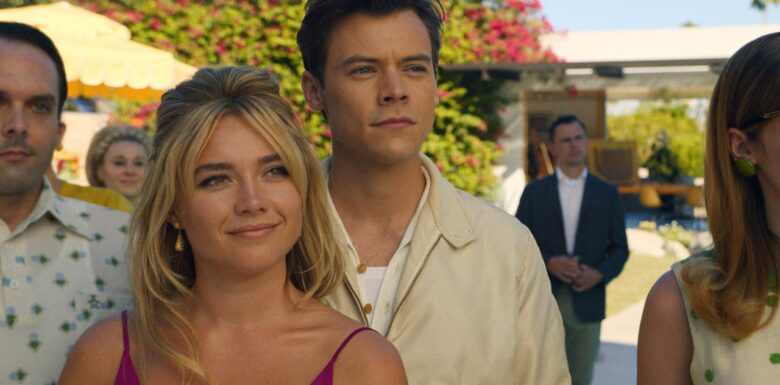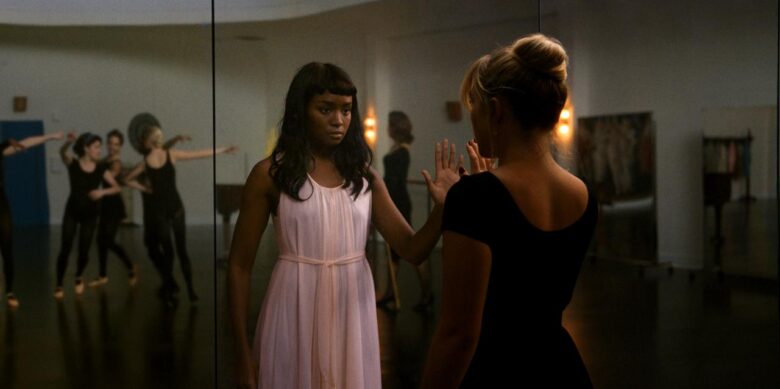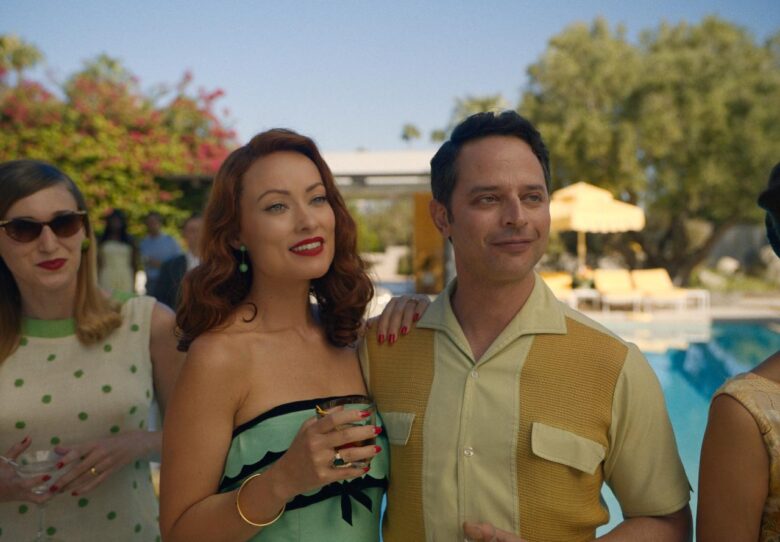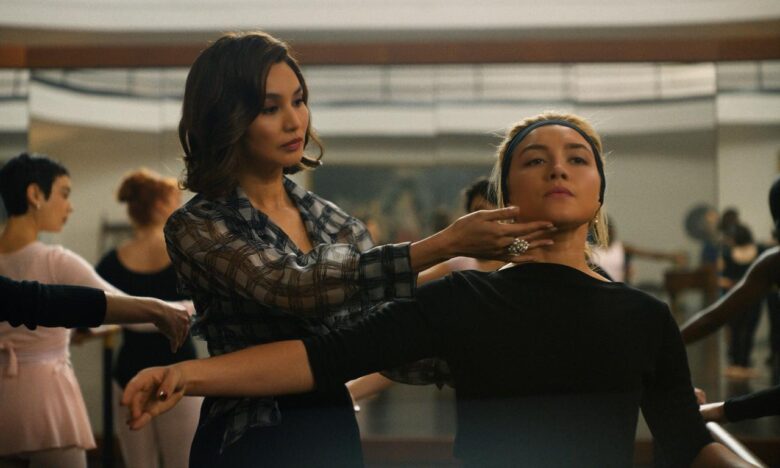Don’t Worry Darling,” the long-awaited new film by Olivia Wilde, director of the hit coming-of-age comedy “Booksmart,” is a psychological thriller. The film depicts the fears felt by women.
Who is the ideal “utopia” for?
Olivia Wilde, best known as the actress of “Tron: Legacy” and “In Time,” has gained popularity as a film director with her impressive directorial debut “Booksmart. Her latest film, “Don’t Worry Darling,” is a psychological thriller that is a more straightforward feminist film than her previous work, an “involuntary heart-stopping” psychological thriller that is a far cry from her previous coming-of-age comedy.
The film is set in Victory, a “utopia,” but it also depicts a “reality” that many women can understand firsthand. What is it all about?
In Victory, a town that guarantees a perfect life, the husband owns a house and drives to work every morning. The wife supports her husband, takes care of the housework and childcare, and meets with other wives every day when she has time. It is easy to understand why this is considered the “ideal,” but how many of us are exactly the same when compared to what each of these ideals is for us?

Many women do not want to stay home every day, they want to work, and they do not want to be the only one supporting their husbands. However, many women understand the hassle of the “ideal” woman who does housework and childcare, supports her husband devotedly, and is always well groomed.
There are also men who want to be full-time househusbands. In other words, Victory is a utopia that only applies to those who are not concerned about limiting women’s right to choose, and who value the stereotypical masculine image. And in this film, people called incels are the problem.
What is an incel?
One of the major themes this story tackles is that of the incel. The word “incel” is a mixture of involuntary celibate and refers to a man who is “involuntary” or “celibate”.
They are in a state of involuntary celibacy because they are unable to date women, and they blame women who reject them, claiming that it is the women’s fault that they are unattractive. They also believe that their problems can be solved by having a female partner. In Europe and the U.S., there are many cases in which the perpetrators of shootings and mass murders were incels, and this is seen as one of the social problems. In Japan, it has been pointed out that Tomohiro Kato, the perpetrator of the Akihabara massacre, was an incel.
Jack, Alice’s husband who kidnapped her and held her captive in virtual reality, was also living with Alice in reality, so he is not a typical incel, but director Wilde revealed that Frank, the ruler of Victory, played by Chris Pine, is a character modeled after a “hero in the incel community. The model for this character is the Harvard University and the University of California, Berkeley.

That model is Jordan Peterson, who has taught at Harvard University and the University of Toronto, and the director criticized him as a “fake intellectual. Jordan has been sending out messages that have stuck in the minds of the incel community, and the relationship between a sender like Jordan and the incel community is plainly shown in the play, where the real-life Jack was addicted to Frank’s podcast show.
However, even though Jordan has many problematic comments in various areas, he himself is married and has two children. Another representative figure who is viewed as a hero by incels is Elliot Rodger, who killed six people by stabbing and shooting in California in 2014 and then committed suicide, and unlike Jordan, he himself was an incel, although he is viewed as a hero.
Furthermore, many of Frank’s statements in the play were unclear in their intent, perhaps in an attempt to preserve a sense of mystery, and it was difficult to get the impression that he was the authority figure leading the incel. From the director’s comments and Jack’s appearance in reality, it seems that the director intended to raise the issue of incel, but it would have been more convincing if he had pursued the simple theme of “the hell where many people’s misogyny leads them to”. However, it would have been more convincing if he had pursued the simple theme of “the hell where misogyny leads many people.
Therefore, rather than thinking of Jacques as an incel, it is easier to see him as a man with misogynistic values who tries to treat women the way he wants to be treated, ignoring the fact that they are human beings with their own individual wills. In fact, there are many such men in reality.

In virtual reality, Jack is successful at his job, lives in a house with a car, has good taste, and has no relationship problems. It is so convenient that as soon as he is in the virtual reality, i.e., Alice is by his side, everything goes well without any effort, but in their minds, the presence of the woman seems to make everything better.
Any woman who notices the discomfort is called crazy.
Before Alice realized Victory’s secret, Margaret had realized the truth about virtual reality. People around her say that she is crazy. They try to treat her as if she is “sick”.
Historically, when women speak out against discrimination and sexual violence, the women’s side is considered to be wrong, and it is recognized as a social problem.

On the other hand, Margaret’s presence is important, but it is unfortunate that the production team did not make good use of her. It has been pointed out that using the death of a minority character to enhance the majority character is problematic in the film. The film is a feminist film, but the role of Margaret, a black woman, is trivial, and it is unlikely that the film has moved on from the failures of white feminism (feminism for white women only).
Furthermore, given that Kiki Layne, who played Margaret, has revealed that most of her scenes in the film were cut, one can’t help but wish that the film had made better use of the character of Margaret.
Having Children.
At the climax of the film, it is revealed that Alice’s neighbor Bunny knows that Victory is a virtual reality, and she encourages Alice to return to reality, but she chooses to remain in Victory because she does not want to leave her own children, who were born in a virtual space.
This development is impactful in the story, but not that important. However, in the context of reality, it is important to recognize what the director has pointed out here. In the setting of this film, the reason for Bunny’s actions is that she will never see her children again if she returns to reality, but whatever the reason, the fact that she has children she must protect has a significant impact on the actions and choices of women.

I am by no means saying that children are a hindrance to women; in reality, for example, it is difficult for a woman to live as a single mother with children, and the subsequent court case can be very labor intensive.
On the other hand, it is interesting to note that Frank’s husband, Shelley, who was never explicitly stated whether she had children, woke up at the end. She killed Frank, but it was also possible to take this as a way to control Victory, i.e., to become the head of the evil side. What exactly does her awakening mean?

In a society where women’s rights are so commonly suppressed, one’s breathing is constricted by a bitterness that feels as if one’s neck is being slowly and gradually tightened with a cotton cord. This film simulates such a suffocating sense of entrapment and tension just by watching it. This is the reason why I described it at the beginning of this article as a psychological thriller that “unconsciously puts a strain on your heart. In the film, Alice escapes from an “ideal world,” but that does not mean that the reality is more ideal for women. Where is this dreamlike world for us?


コメント